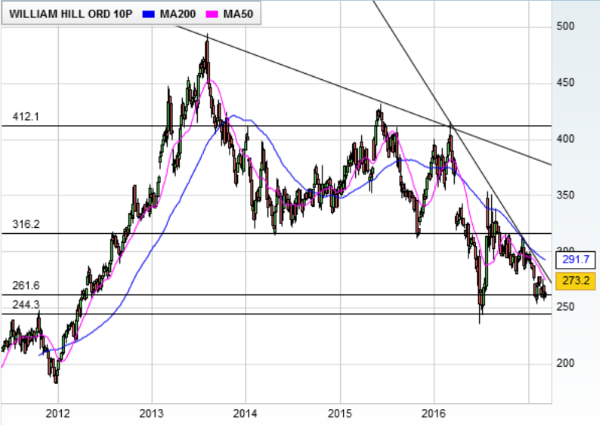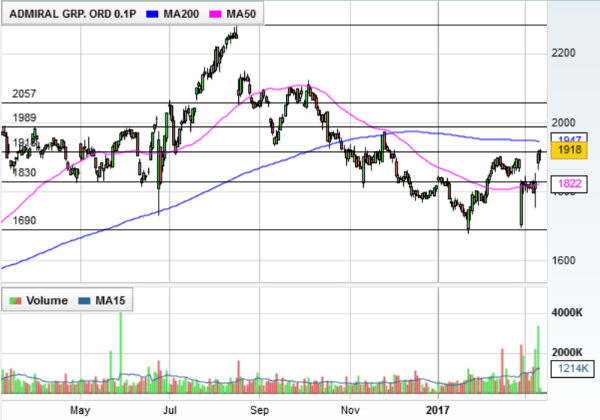Insider: New CEO backs this mid-cap’s recovery
10th March 2017 11:20
by Lee Wild from interactive investor
Share on
Party poppers at William Hill
After eight months as finance director then another eight as interim CEO, Philip Bowcock has proved his worth and been given the top job at on a permanent basis.
Hill's share price is little changed since Bowcock took over from the deposed James Henderson in July, but the bookmaker's chairman points to progress at the troublesome online business, the retail operation and overseas bets.
"Our recent results show that William Hill is now in a stronger position and Philip has outlined a clear plan to continue that momentum into the future," said Gareth Davis Friday.
Of course, he's got his work cut out in an industry struggling under a weight of fresh regulation and a clampdown on high stakes slot machines.

But full-year results announced two weeks ago were decent enough. Lower tax meant earnings per share (EPS) edged ahead of consensus estimates to 22.2p, but it's strength at the European online division that analysts believe will drive any upgrades or a re-rating.
And Bowcock is backing himself, as you would expect. He's just bought his first William Hill shares – 30,000 in four tranches a tad either side of 270p, costing around £81,000.
Non-executive director Sir Roy Gardner is at it, too, nearly doubling his stake to 22,600 after snapping up 10,000 Hill shares at 270.7p.
While these purchases are clearly encouraging, Bowcock has deep pockets. He gets a 9% pay rise, or an extra £50,000 a year for leading Hill, putting him on £600,000 a year. Benefits, pension allowance, annual bonus plan and long-term incentive awards mean he'll take home significantly more.
Admiral rides wave higher
Another director was celebrating good news over at , the insurer with the sea-faring mascot.
Just a fortnight after being torpedoed by a change to the discount rate which determines personal injury damages awards – an "eccentric government decision," according to chief executive David Stevens - Admiral reported good full-year results.
Undeterred by the rate hit, non-executive director Annette Court, former CEO at , spent over £39,000 on 2,150 shares at a smidge under £18.24 each. But why is Court, chairman of The Dining Club, tucking into Admiral shares?
A decision by Lord Chancellor Liz Truss to slash what's known as the Ogden discount rate from 2.5% to -0.75%, the first change since 2001 and far worse than anyone expected, forced Admiral to postpone its 2016 results by one week.

Once the number crunchers had finished their sums, Admiral cut second-half 2016 profits by £105 million pre-tax and £87 million post-tax.
"The reduction in profit in 2016 means that a large portion of the impact of the change has been recognised already, with the balance (something in the order of £65 million post-tax) to be reflected in the coming years in the form of lower reserve releases and profit commission than would otherwise have been the case with an unchanged rate," explained Admiral.
Factoring in the new Ogden rate, pre-tax profit fell 25% in 2016 to £284 million. At the old rate it was up 3% at nearly £390 million on revenue up 22% at almost £2.6 billion, a record.
Meanwhile, price comparison business Confused.com grew profits by 29% to £16.1 million.
With a strong capital position – a group solvency ratio of 212% is way above the 125-150% target – Admiral fulfilled its promise to pay 65% of post-tax profits as a normal dividend, with earnings not needed for solvency or buffers paid back by way of a special dividend.
That meant shareholders will receive a 15p ordinary dividend and 36.5p special, taking the total for the year to 114.4p and giving an historic yield of 6%.